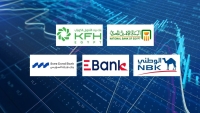Egypt's central bank offers one-year incentives to support e-payments

The Central Bank of Egypt (CBE) has set new measures meant to prohibit the fraudulent and abusive use of credit and debit cards outside the country.
According to a circular issued on Thursday, the CBE said it has noticed that there are credit and debit cards that are used abroad to collect hard currency while their owners are in Egypt. The CBE said that it has also noticed that there are clients who exchange local currency for US dollar while being in the country with no evidence of travelling abroad.
According to CBE regulations, travellers are allowed access to a certain amount of hard currency from their local banks after providing their passport and ticket.
Egypt is suffering from a shortage of hard currency. A black market where the US dollar is traded for over EGP 30, compared to the official exchange rate of EGP 24.7, has flourished.
As of 22 December, all banks are instructed to notify the CBE and the I-score Company of any credit and debit card abuse cases of that sort, so as to withhold the credit cards and take necessary legal action.
On Thursday, banks sent mobile messages to their clients notifying them of these regulations and indicating the limits on clients’ purchases while being abroad. These limits vary with the type of card.
Banks have already reduced cash withdrawal and purchasing limits overseas depending on the type of card a client has.
Several banks - including Arab African International Bank, Commercial International Bank and National Bank of Egypt - have increased their commission fees on cash withdrawals and purchases overseas to 10 percent per transaction up from 3 to 7 percent according to each bank. The new fees have been communicated to clients through messages on their mobiles and seen by Ahram Online.
Recently, the CBE has taken a number of measures to relieve the pressure on the foreign exchange reserves, deal with the shortage of the hard currency in the local market, and control the rising prices of the US dollar in the unofficial market






